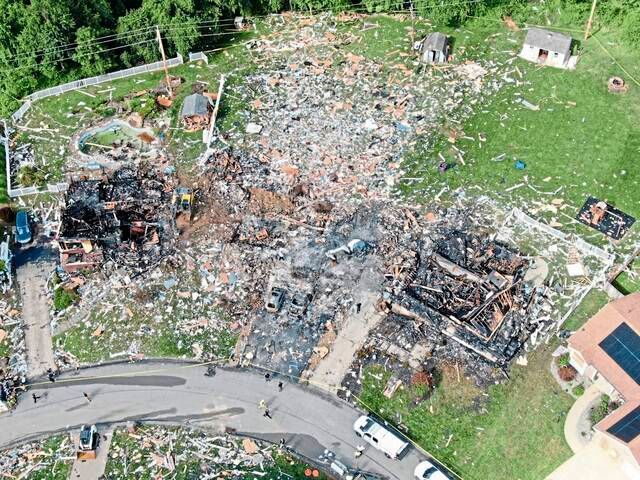Natural Gas at Home:
Safety & Prevention
Do YOU have killer gas?

While natural gas is widely used for heating, cooking, and powering appliances in many homes, it poses significant dangers if not handled properly. One of the primary risks is gas leaks, which can occur due to faulty appliances, damaged pipelines, or improper installation.
Natural gas leaks are highly flammable and can lead to fires or explosions, putting both property and lives at risk. Additionally, natural gas emits carbon monoxide, a colorless and odorless gas that can be deadly if inhaled in high concentrations. Without proper ventilation or detection systems, carbon monoxide poisoning can occur, leading to symptoms ranging from headaches and dizziness to unconsciousness and death.
Therefore, it's crucial for homeowners to prioritize regular maintenance of gas appliances, install carbon monoxide detectors, and promptly address any suspected gas leaks to mitigate these dangers. For the ultimately cautious homeowner, we suggest capping your natural gas line and moving to all electric appliances.
-
Be vigilant for signs of potential gas leaks
- Detecting sulfur-like odor inside your home or building
- Observing dead plants in the vicinity of a gas line
- Noticing a hissing sound coming from a gas line
- Spotting a white or dust cloud formation near a gas line
-
Know where gas lines are on your propety
Knowing where the gas lines are on your property is crucial to keeping yourself and others safe from potential leakages.
-
Recognize when it’s time to replace a gas line
As a result of natural erosion, certain natural gas pipelines may eventually require repair or replacement. Taking a proactive approach by regularly testing, maintaining, and repairing your gas piping is crucial to prevent any lasting harm to your valuable assets and livelihood.
-
Ensure carbon monoxide detectors are functional
Even without a full on gas leak, gas appliances can be dangerous! Ensure that your home has functioning carbon monoxide detectors to keep yourself and others safe from this poisonous biproduct of natural gas heating.
-
Replace gas appliances with electric models
For the ultimate peace of mind, you may have your home's gas line capped and replace gas appliances with newer electric models. In many states and municipalities there are even government or utility incentives to subsidize this.
-
Call before you dig
Before initiating any digging activities, it's imperative to reach out to your local government's 311 line for the identification and marking of underground gas lines. This essential service is provided at no cost and is mandatory prior to commencing any excavation work. It's important to note that utility companies and local governments will only mark the underground infrastructure they own and manage.
Shocking Before and After Photos of Blast that Claimed 6 Lives in Pennsylvania
Three homes were obliterated by a Natural Gas leak in Plum, Pennsylvania in late August of 2023. Six lives were tragically lost, and a community was left reeling. Yet around the country this occurrence is not as uncommon as you might think.
Recent data compiled by the U.S. Public Interest Research Group shows that between 2010 and 2021, the United States experienced 2,595 serious natural gas incidents which killed 122 people and injured several hundred more.
Natural Gas pipelines run from coast to coast delivering gas to homes and businesses. But many consumers opt into gas delivery without fully understanding the associated risks.



